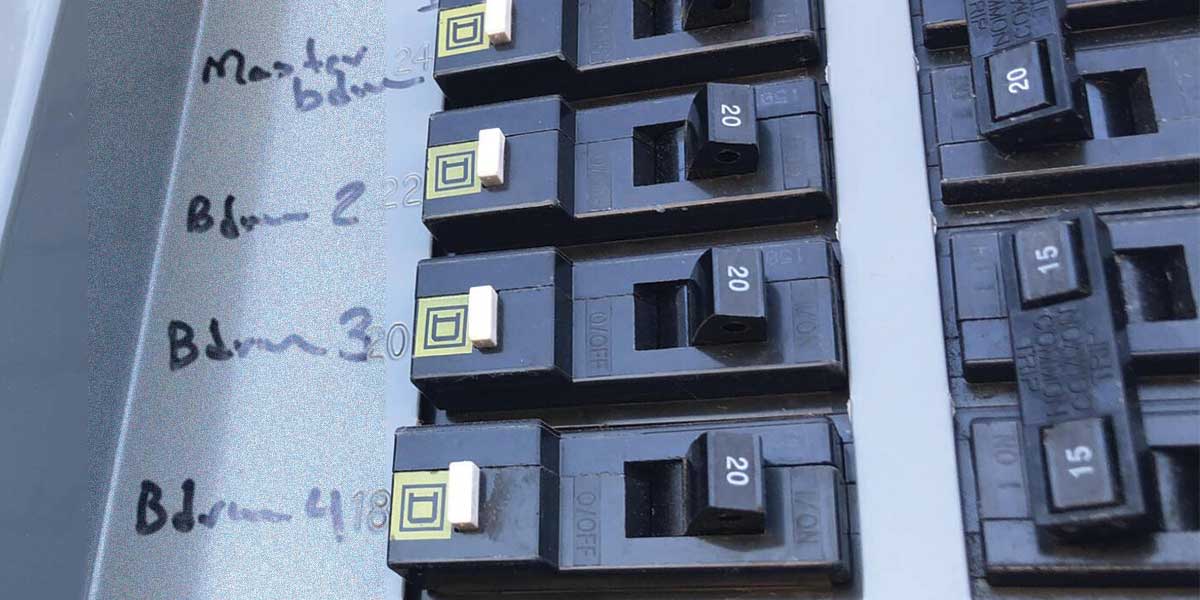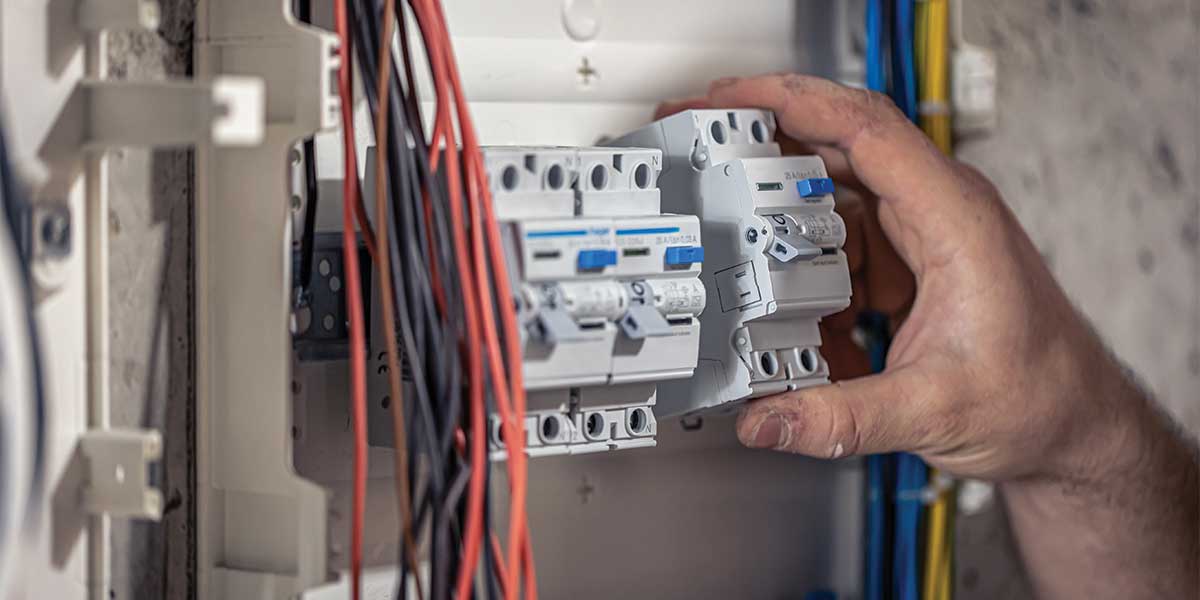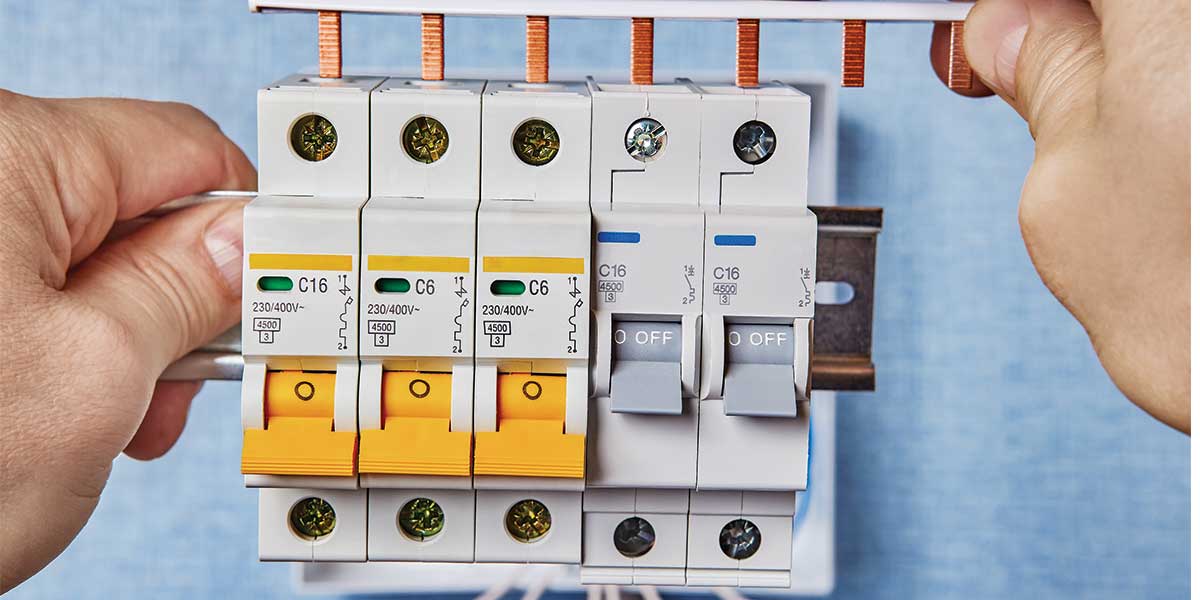Electricity powers almost every aspect of modern life, from keeping the lights on to running complex appliances. But with great power comes great responsibility (and the occasional tripped switch). The unsung heroes behind electrical safety in homes and businesses are the fuse box and circuit breaker.
Both are designed to protect your electrical system by stopping the flow of electricity during overloads or short circuits, but they work in different ways. At Expert Electric, we know how important it is for homeowners and business owners to understand the difference between these two protective devices. Having the right system in place not only improves convenience but also ensures the safety of your property and loved ones.
The Role of Overcurrent Protection Devices
Every electrical circuit has a limit to how much current it can safely handle. If a circuit is overloaded, it can overheat, damage appliances, or even cause a fire. That’s where overcurrent protection devices, such as fuses and circuit breakers, step in.
Both serve the same fundamental purpose:
-
Detect excessive current
-
Interrupt the circuit before damage occurs
-
Prevent electrical hazards like fires and shocks
The main difference lies in how they achieve this protective function.

Fuse Box Explained
A fuse box is an older form of electrical protection, though still found in many homes today. Inside each fuse is a thin metal filament designed to melt when exposed to excessive current. Once it melts, the circuit is broken, and the electricity stops flowing.
Key Characteristics of Fuses:
-
One-time use: When a fuse blows, it must be replaced.
-
Fast response: Fuses tend to react slightly faster than circuit breakers, making them useful in protecting sensitive electronics.
-
Material: Typically constructed from glass, ceramic, or metal enclosures.
-
Cost: Inexpensive to purchase but potentially less convenient over time due to replacement needs.
Advantages of Fuse Boxes:
-
Highly reliable at detecting overloads
-
Simple design with fewer mechanical parts
-
Can be effective in specialized applications like electronics
Disadvantages of Fuse Boxes:
-
Require replacement after each overload event
-
Not as user-friendly for the average homeowner
-
Can be harder to maintain compared to modern circuit breaker panels
Circuit Breaker Explained
A circuit breaker is the modern alternative to fuses. Instead of melting, circuit breakers use either an electromagnet or a bi-metal strip to detect excessive current. When triggered, the breaker simply flips a switch, cutting power instantly.
Key Characteristics of Circuit Breakers:
-
Reusable: Once tripped, they can be reset with a simple switch flip.
-
Durable: Can withstand multiple trips without needing replacement.
-
Convenient: Resetting is much faster than replacing a fuse.
-
Flexibility: Can handle higher household and business power demands.
Advantages of Circuit Breakers:
-
Long-term cost-effectiveness due to reusability
-
Easier troubleshooting since tripped breakers are easy to identify
-
Enhanced safety with more consistent protection
Disadvantages of Circuit Breakers:
-
Higher initial cost compared to fuses
-
May be slightly slower to react than fuses in rare cases
-
Require professional installation and maintenance
Comparing Fuse Box and Circuit Breaker
So, what is the real difference between a fuse box and circuit breaker? Let’s break it down:
| Feature | Fuse Box | Circuit Breaker |
|---|---|---|
| Function | Melts wire to stop electricity | Flips switch to interrupt current |
| Reusability | Single-use (must replace) | Reusable (reset switch) |
| Response Time | Slightly faster | Slightly slower |
| Cost | Low upfront | Higher upfront, lower long-term |
| Convenience | Inconvenient replacement | Easy to reset |
| Modern Use | Less common in homes | Standard in most homes |
For homeowners, circuit breakers generally offer greater convenience, safety, and long-term cost savings. However, fuses may still be the right choice in certain niche applications.
Why Modern Homes Use Circuit Breakers
Today, almost every new home is equipped with circuit breakers instead of fuse boxes. Why? Because they:
-
Handle higher electrical demands (think smart appliances, HVAC, EV chargers).
-
Are easier for non-electricians to reset.
-
Offer better adaptability to modern safety standards.
If your home still relies on a fuse box, it may be worth upgrading to a circuit breaker panel for enhanced safety, convenience, and compliance with current building codes.

Signs It May Be Time to Upgrade
If you’re unsure whether to upgrade your electrical system, watch for these signs:
-
Your home still has an old fuse box.
-
Frequent blown fuses or tripped breakers.
-
Burning smells or scorch marks near the panel.
-
Lights flickering or dimming regularly.
-
Adding high-powered appliances (e.g., hot tubs, EV chargers).
When in doubt, consult a licensed electrician from Expert Electric to assess your system. For additional guidance on preventing risks and understanding common electrical hazards, the Canadian Centre for Occupational Health and Safety provides a trusted resource.
FAQs About Fuse Boxes and Circuit Breakers
1. Can a fuse box still be safe to use?
Yes, fuse boxes can still provide protection, but they’re less convenient than circuit breakers. Older fuse boxes may also struggle to handle the electrical load of modern homes, making an upgrade advisable.
2. Which is better: a fuse box or circuit breaker?
Circuit breakers are generally better for modern homes because they are reusable, safer, and more convenient. Fuses, however, can provide slightly faster protection in specific cases.
3. Can I replace a blown fuse myself?
Yes, but it must be done carefully. Always switch off the main power and use a fuse with the correct rating. If you’re unsure, it’s safer to call an electrician.
4. How do I know if my home has a fuse box or circuit breaker?
Check your electrical panel:
-
A fuse box will have round glass or ceramic fuses.
-
A circuit breaker panel will have switches you can flip.
5. Should I upgrade my fuse box to a circuit breaker?
In most cases, yes, especially if you’re experiencing frequent electrical issues or upgrading appliances. Circuit breakers are safer, easier to manage, and meet modern building standards.
Final Thought
Whether you have a fuse box or circuit breaker, both serve a vital role in protecting your electrical system. The difference lies in convenience, reusability, and compatibility with modern electrical demands.
At Expert Electric, we recommend upgrading to circuit breakers for most homes and businesses to ensure safety, compliance, and peace of mind. However, understanding how both systems work empowers you to make informed decisions about your electrical setup.
Contact Expert Electric
Is your electrical system up to date? Don’t take chances with safety. Whether you need a new circuit breaker installation, fuse box inspection, or a full electrical upgrade, Expert Electric has you covered.
📞 Call Us: 604-681-8338
📧 Email Us: info@expertelectric.ca
Trust the licensed professionals at Expert Electric to keep your home or business running safely and smoothly.


